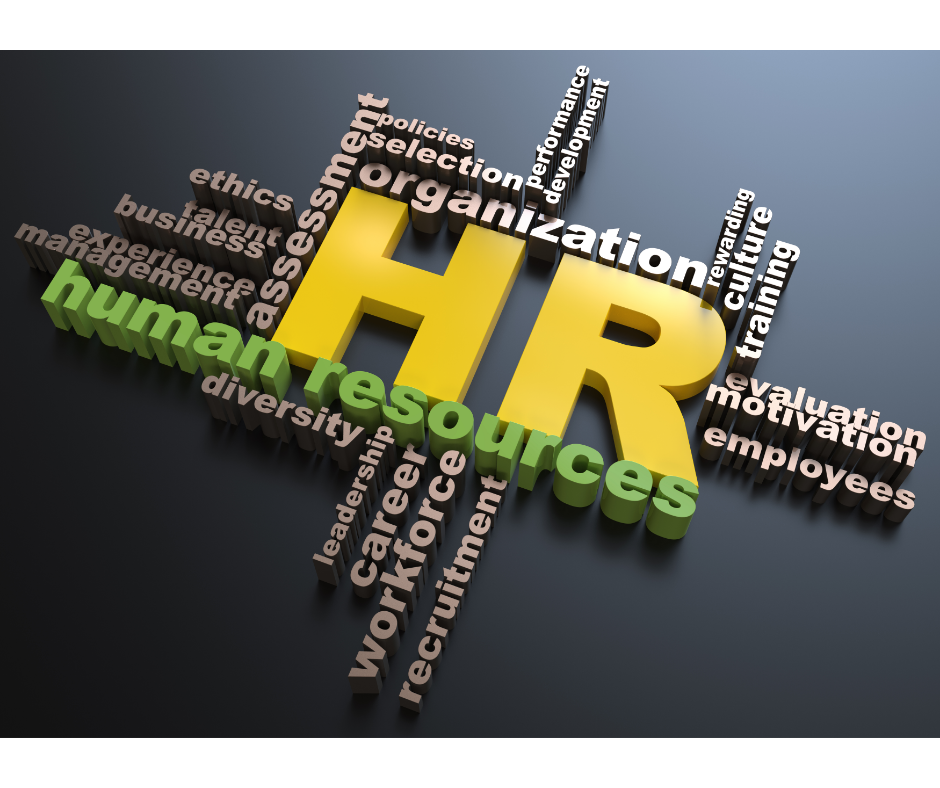This Week in HR by Paige
The Importance of HR in Your Business
There are many specialised functions/elements that make up the “Human Resources Function”. The way it looks today is very different to how it looked 40, 20, and even 4 years ago “pre pandemic”. It has had many name changes from Personnel, Industrial Relations Human Resources to People and Culture, having said that whatever you call it, it is still a critical function in any business, large or small.
If you are a CEO, MD, GM or leader in your business or if you have people reporting to you, you know how important it is to have a well-rounded team working together to make your business successful. If you have been around a while, you will know the difficulties that can arise when the team are not on the same page.
You may think that having an additional HR Professional isn’t necessary for your business especially if you have under 20 staff and have been handling it yourself hopefully, without any issues to date. So, you might reasonably have the view that it is just another expense and one other person you have to manage.
Have you considered having an HR person to support you to achieve your objectives through a highly functional team?
There are many ways to have a HR Professional on your team.
- You can hire a full-time person, but the reality is if you have under 20 employees it probably isn’t worth it,
- You could look at a part time option, but again you would need to weigh up whether the extra headcount and a permanent salary is worthwhile.
- The other option is to outsource and pay someone on an “as required basis”.
Whichever, option best suits your business here are four reasons why you should have a Human Resources Professional, of some sorts, on your team.
1. Help to Reduce Risk of Legal Action
Having an experienced HR Professional can help ensure your business:
- complies with all applicable employment laws. Australia’s workplace relations system is very complicated, we have the National Employment Standards, Awards, some businesses could have Enterprise Bargaining Agreements’ (EBA’s) as well as Individual Employment Contracts.
- Complies with other HR and OHS legislation such as Sexual Harassment, Discrimination, Bullying, and health and wellbeing.
- Uses best practice to manage employee relations issues before they become a major problem.
2. Help to Improve Employee Retention
Having a dedicated HR Professional could help ensure employees are happy and engaged which will lead to better retention rates by:
- Developing strategies and programs to create and ensure a positive work environment where employees are engaged.
- Developing policies that make employees feel valued and connected to your business such as flexible working arrangements, wellbeing programs, learning and development and diversity and inclusion.
- Providing support for employees who are dealing with personal issues or conflicts in the workplace.
- Helping to ensure you consider your social consciousness and the greater impact your business has on the community.
3. Attracting & Retaining Top Talent
This isn’t just about offering competitive salaries; it’s also about having a suite of benefits that resonate with today’s job seekers and caters to an ageing workforce as well as the younger Generation Z employees. An experienced HR Professional can:
- work with you to create your Employee Value Proposition (EVP) to ensure the best success for attracting new employees.
- help create a package that keeps employees happy while staying within budget constraints.
- create job descriptions that accurately reflect the duties and accountabilities of each position in your organization. This can help ensure that you hire the most qualified people for each job and limit liability associated with hiring decisions. If these accountabilities are done correctly each employee’s job description will be directly linked to bottom line performance of the business.
- identify the best candidates for vacant positions at your company, by following consistent and fair recruitment practices.
- Design effective onboarding processes that will strengthen relationships between employees and the organization while helping new hires get up-to-speed quickly and efficiently.
4. Help to Increase Efficiency
The use of technology and changes to work arrangements has been essential over the past 4 years for all businesses. Work from home has proven that flexible working arrangements work for many businesses, but do you feel it has worked for you. I have little doubt that employees think it makes them more efficient the biggest point being they regain their travel time. Leaving these type of arrangements in place will assist in you being considered an employer of choice but is it efficient for you? There is an expectation, especially from the Millennials and Generation Z that processes are not clunky and inefficient. For instance, they can:
- help devise strategies for addressing conflicts between employees or departments before they become major issues that affect morale or productivity levels throughout the organization.
- Develop new innovative performance measurement tools that suit a remote workforce.
- provide insight into implementing Human Resources Information Systems that make mundane tasks (new employee paperwork and onboarding, attendance records, leave approvals and even performance management) more efficient which saves time (and money) in the long run.
Ultimately, investing in an experienced HR professional, in any capacity is a wise investment for any business who wants to ensure their organization remains compliant, attracts and retains top talent, and runs smoothly and efficiently as it grows over time.
A HR Professional brings invaluable expertise and knowledge which can save you time, money, and headaches down the road while helping to build a strong foundation on which your business can thrive.

